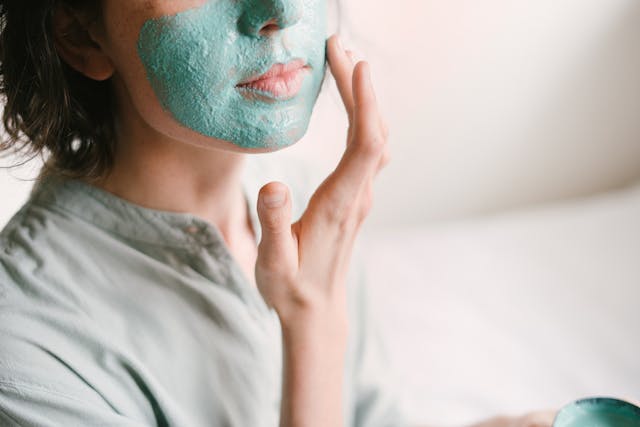Distinguishing between effective remedies and mere myths can be difficult in the vast expanse of beauty and wellness. With an endless stream of tips and tricks claiming to provide the ultimate solution to various beauty problems, it’s essential to navigate this world with a critical eye. This article looks at several popular beauty hacks, highlighting those that stand the test of scientific research and debunking others that don’t live up to their promises.
Navigating body sculpting techniques
Among the many beauty enhancements available today, body sculpting has received a lot of attention for its promise of reshaping and contouring the body without invasive surgical procedures. Two of the most talked about methods in this area are WarmSculpting and CoolSculpting, each of which uses a unique approach to target and eliminate fat cells.
For individuals weighing their options between the two, Compare WarmSculpting and CoolSculpting provides a comprehensive overview, shedding light on the underlying technologies, efficacy and suitability for different body types and goals.
Hydration: the underrated beauty miracle
The role of hydration in maintaining skin health cannot be overestimated. Water is essential for the proper functioning of every cell in the body, including those in the largest organ, the skin. Adequate hydration keeps the skin supple and resilient, which is crucial for maintaining its barrier function against environmental stressors.
Additionally, well-hydrated skin can better manage and retain moisture, which is essential in preventing dryness and the formation of fine lines. Finally, water helps detoxify the body, leading to a clearer, more vibrant complexion by minimizing the chance of acne and other skin imperfections.
So, incorporating enough water into the daily routine is an easy yet impactful step toward achieving and maintaining a healthy, youthful glow.
The myth of toothpaste on pimples
The idea that toothpaste can serve as a quick fix for acne is a myth that can do more harm than good to the skin. The misconception stems from the fact that some toothpaste ingredients, such as baking soda, hydrogen peroxide and alcohol, have drying properties. While it is true that these components can dry out pimples, their aggressive nature can seriously irritate and damage the skin. This irritation can lead to further inflammation, redness and even peeling, disrupting the skin’s natural healing process and potentially leading to scarring or more severe acne.
Dermatologists advise against this hack, instead recommending targeted acne treatments. These treatments contain science-backed ingredients such as salicylic acid and benzoyl peroxide, specifically designed to treat acne without damaging the skin.
Sunscreen: not just for sunny days
The need to include sunscreen in daily skin care routines is based on its ability to protect the skin from the harmful effects of UV rays. Despite common misconceptions, UV rays can penetrate clouds and glass, exposing skin to potential damage even on cloudy days or indoors near windows. Prolonged exposure to UV rays accelerates the skin’s aging process, manifesting as wrinkles, fine lines and hyperpigmentation, and significantly increases the risk of developing skin cancer.
By using a broad-spectrum sunscreen with an SPF of 30 or higher, individuals can protect their skin from UVA and UVB rays, maintaining its health and youthful appearance. This practice is essential for all skin types and during all seasons, and emphasizes the importance of making sunscreen a fundamental part of daily skin care, regardless of the weather conditions.
The double-edged sword of exfoliation
Peeling plays a crucial role in skin care by removing dead skin cells, which can rejuvenate the appearance of the skin, making it look smoother and more radiant. However, the benefits of exfoliation come with a caution regarding its frequency and intensity. Over-exfoliating can disrupt the skin’s protective barrier, leading to moisture loss, increased sensitivity and irritation. This imbalance can cause a cycle of skin problems, including inflammation and acne breakouts, as the skin tries to compensate for the loss of natural oils.
It is imperative to choose an exfoliation method that is compatible with one’s skin type (whether chemical, physical or enzymatic) and to moderate its use to avoid adverse effects so that the practice improves skin health instead of endangering it.
Coconut Oil: A Cautionary Tale
Coconut oil is often praised for its versatile benefits, attributed to its moisturizing properties and natural composition. It is a favorite choice for body care and hair treatment, and is known to provide hydration and shine. However, its application is not without reservations, especially when it concerns the facial skin. The comedogenic nature of coconut oil means it can clog pores, potentially worsening acne conditions or causing breakouts, especially in people with oily or acne-prone skin. This underlines the importance of recognizing the diversity in skin types and their responses to different substances.
Before incorporating coconut oil into a facial care routine, it is advisable to assess the skin’s specific needs and responses to avoid unintended consequences.
The power of sleep
Sleep is often called the best cosmetic, a natural therapeutic process that plays an essential role in maintaining the health and vitality of the skin. During sleep, the body enters a state of repair, allowing cells to regenerate and recover from the stressors of the day. Insufficient sleep can visibly manifest itself on the skin, accelerating the signs of aging and reducing its natural glow. The recommendation of seven to eight hours of restful sleep per night is not arbitrary; it matches the body’s natural rhythms and the time needed to optimize the rejuvenation process.
Embracing quality sleep as an essential part of a beauty routine can have a significant impact on one’s appearance, highlighting its role as a fundamental, yet often overlooked, pillar of skin care.
Takeaway
When it comes to beauty and wellness, it’s essential to approach beauty hacks with skepticism and a willingness to investigate. While some tips, like staying hydrated and protecting the skin from the sun, have universal benefits, others may not deliver on their promises or could even cause damage. Listening to the body and consulting with professionals when in doubt is the best strategy for navigating this complex landscape.




